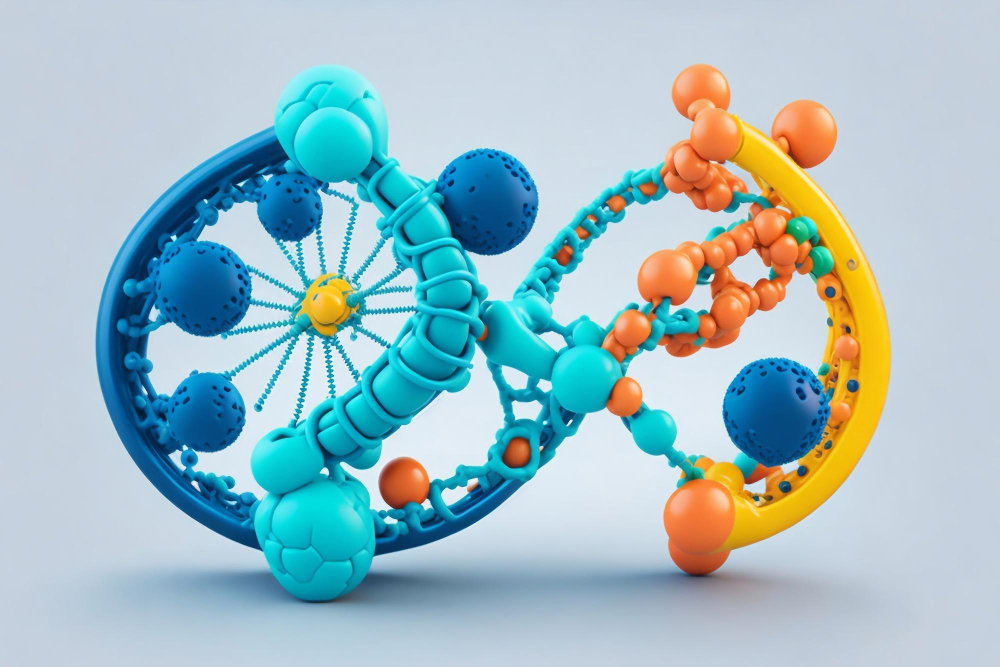Depression is a serious mental illness that affects almost 10% of the US population. The World Health Organization estimates depression will become the second leading cause of death by 2020. Antidepressants are one of the most common treatments for depression, but they’re not always effective. A genotyping test can help determine whether you’re likely to respond well to specific medications or not—but it’s not meant to diagnose or treat depression alone.
Psychiatric disorders, like depression, are unique in that there are no objective tests for diagnosis.
A major challenge in developing a genetic test for depression is that psychiatric disorders, like depression, are unique in that there are no objective tests for diagnosis. Instead of blood tests or other medical testing, mental health professionals diagnose psychiatric illnesses based on symptoms. Symptoms may be subjective and vary from person to person (e.g., one patient might experience symptoms of depression as sadness while another might describe it as feeling hopeless). They can also be difficult to quantify; some patients might experience only mild mood changes while others have severe symptoms that greatly impact their lives. Finally, these symptoms can be difficult to identify; even if you know that a family member has been diagnosed with depression before and has similar experiences as you do now (or vice versa), you may not realize those experiences are related until after talking further with your healthcare provider about them during an evaluation process known as “diagnostic interviews.”
To complicate matters further still: some of the same symptoms associated with major depressive disorder (MDD) can also occur in other diseases such as bipolar disorder or post-traumatic stress disorder (PTSD). It’s important then when considering how best move forward towards developing an MDD-specific genetic test which looks at multiple genes involved in specific pathways instead one gene at time—you’ll need all available clinical data available so we can compare results against what’s already known about risk factors associated with each pathway rather than just relying upon simple diagnostic criteria alone when making decisions about treatment options available today.”
However, like other diseases, genetic information provides insights into disease risk and treatment.
However, like other diseases, genetic information provides insights into disease risk and treatment. For example, if you know that you are at high risk for breast cancer because of a family history of the disease, your doctor may recommend additional screening. Similarly, if a patient has a gene variant that makes them more susceptible to certain drugs or adverse effects from certain drugs (such as nausea), then the physician can prescribe an alternate medication that does not carry these risks.
Pharmacogenomics is a strategy that uses pharmacological data on gene variants to select the most effective and safest treatment.
Pharmacogenomics is a strategy that uses pharmacological data on gene variants to select the most effective and safest treatment. Pharmacogenetics, the study of how variants in genes affect drug response, has been used to improve patient outcomes for many years. For example, a person who has two copies of an allele associated with poor response to warfarin (CYP2C9*2) is likely to be at an increased risk of bleeding complications when taking this anticoagulant. A doctor may decide not to give warfarin as a first choice medication for such patients because there are other blood thinners that have less severe side effects and can be taken safely by those who are poor responders.
Pharmacogenomics can improve the outcomes of patients taking antidepressants.
One of the biggest benefits of pharmacogenomics is that it can help doctors choose the most effective antidepressant for a patient. In some cases, this means knowing what drug to prescribe before trying several different ones. For example, if you have a genetic variation that makes you more likely to respond well to one class of antidepressants but not another, your doctor might be able to skip trying an SSRI (selective serotonin reuptake inhibitor) and go straight for a SNRI (serotonin-norepinephrine reuptake inhibitor), which works differently in your body.
Pharmacogenetics is the study of how variants in genes affect drug response.
In pharmacogenetics, researchers look at the ways that genetic variations can cause people to either respond differently to a drug or even become resistant to it. Pharmacogenetic testing can be used to predict whether you’ll respond well or poorly to a particular medicine, helping you avoid unpleasant side effects and increasing your odds of getting relief from symptoms.
If you’ve been diagnosed with depression but haven’t responded well to medication, genetic testing could help explain why. Certain gene variations may increase or decrease your chances of getting relief from certain types of antidepressants, so learning about them could make all the difference.
Differences in how quickly psychiatric medications are broken down by your body can have a significant effect on the effectiveness of treatment.
There are a number of significant differences between people that can affect the effectiveness of psychiatric medications. Differences in how quickly psychiatric medications are broken down by your body can have a significant effect on their efficacy, meaning that the same dose of medication may be effective for one person but not for another. This is why it’s important to check with your doctor if you’re taking any medication for depression or other conditions: they’ll know whether your genetic profile requires you to take different doses or use some other method of treatment altogether.
Your genetic profile can determine whether your body will metabolism a drug rapidly or slowly.
- Genetic testing can help identify genetic variants that may affect how you metabolize specific drugs.
- Some variants may affect how quickly people metabolize psychiatric drugs, antidepressants in particular.
- How quickly psychiatric medications are broken down by your body can have a significant effect on their effectiveness.
Genetic testing for depression should not be used as a diagnostic tool but rather as an aid to help doctors choose the best medication for you.
It is important to note that genetic testing is not a replacement for a clinical diagnosis and clinical examination.
Conclusion
In conclusion, genetic testing for depression is an important tool for doctors to use to help identify the best treatment options for their patients. It can also help identify those who may be at higher risk of developing depression or other mental illnesses in future generations. However, this kind of test should not replace traditional methods of diagnosing psychiatric disorders; rather, it should be used in conjunction with these diagnostic techniques so that patients can get the most effective treatment possible.


